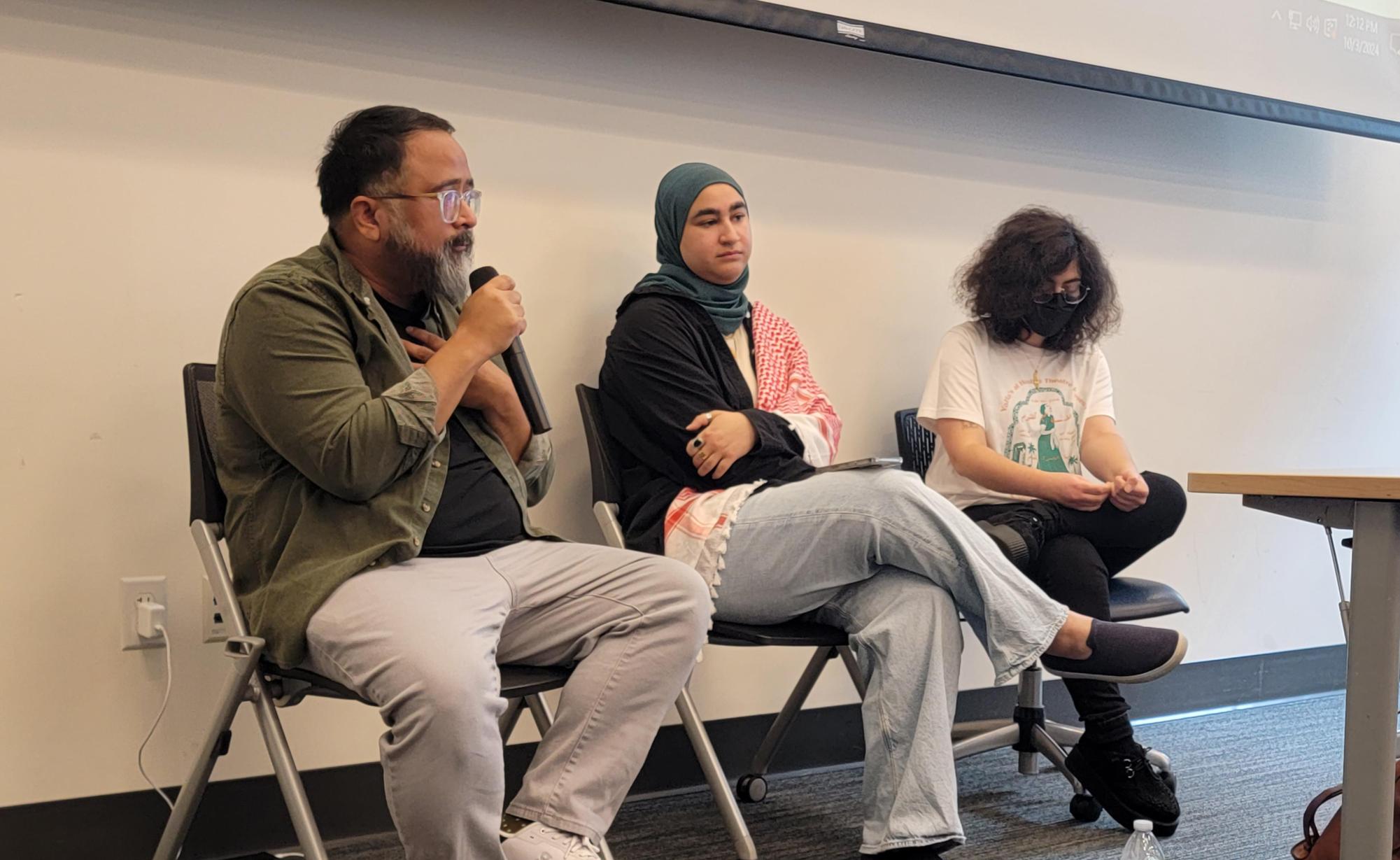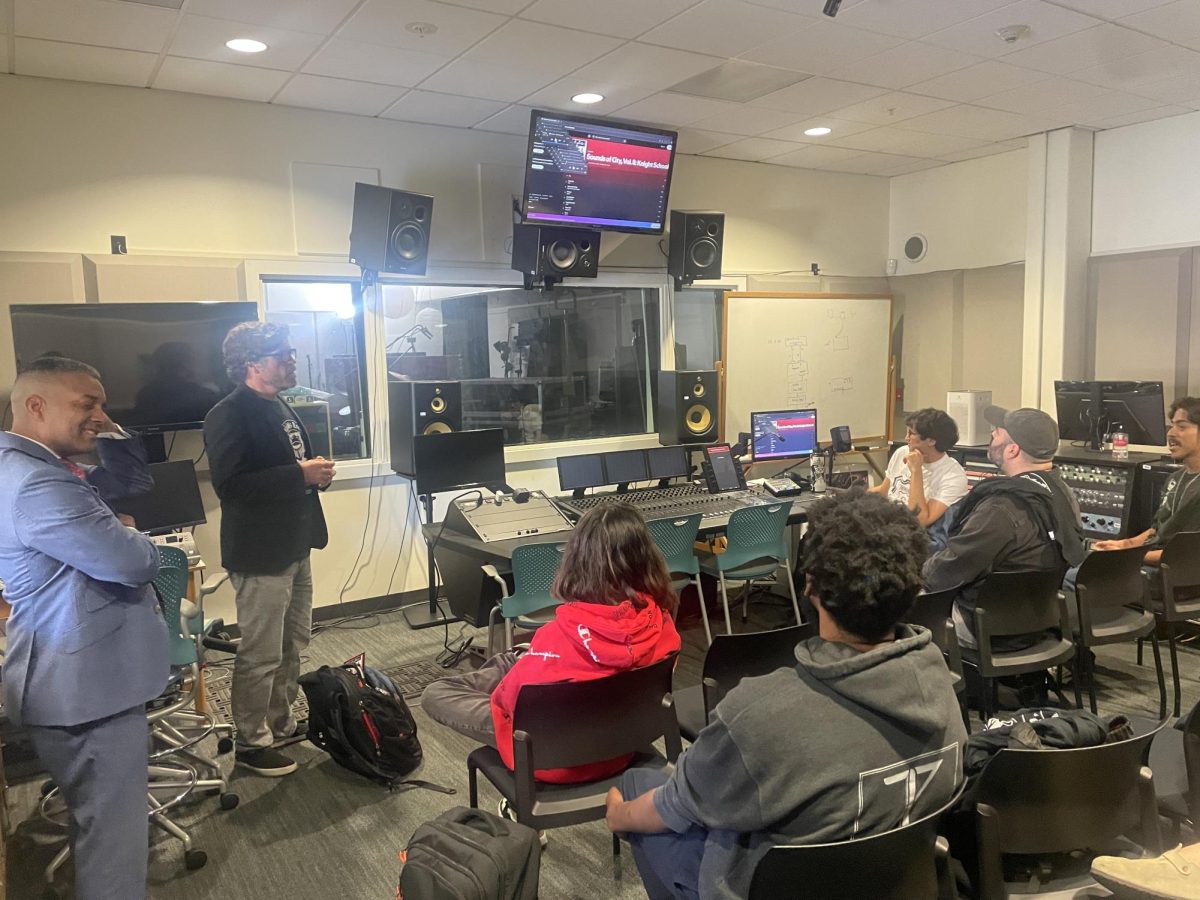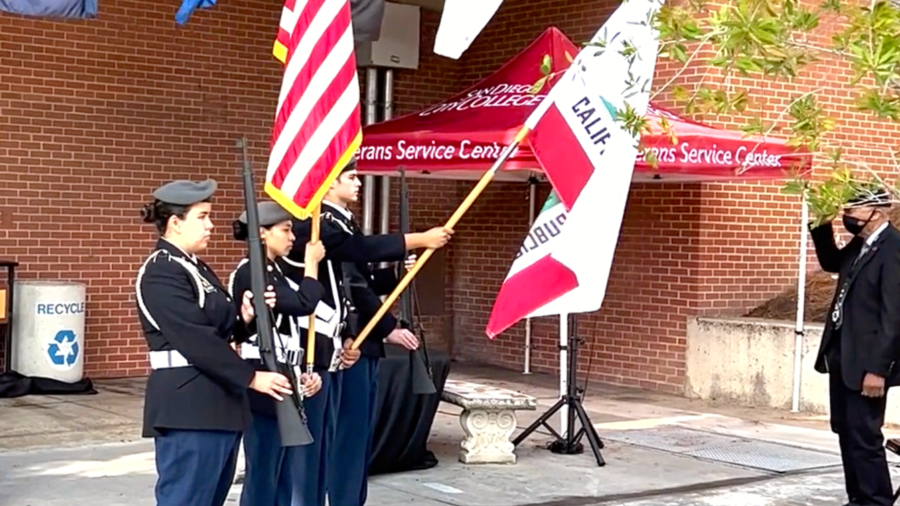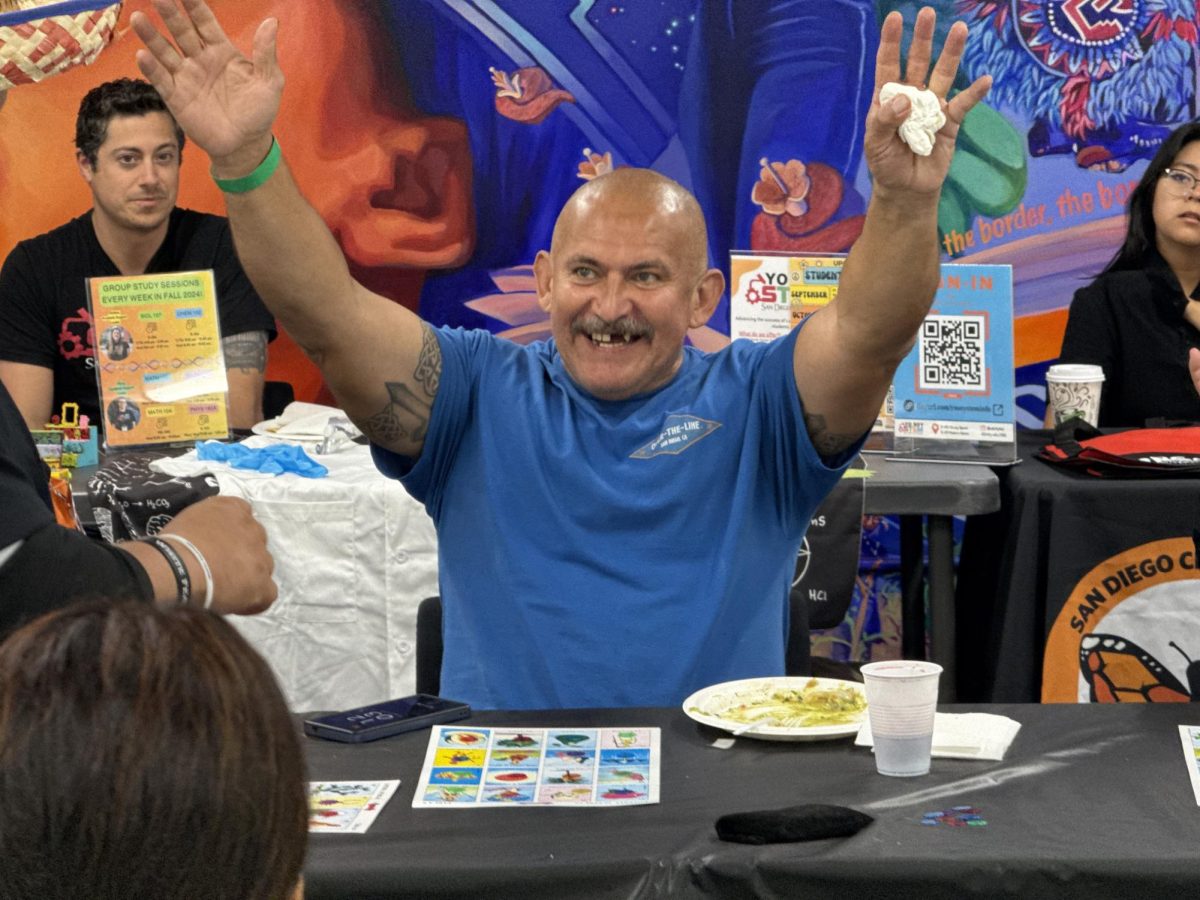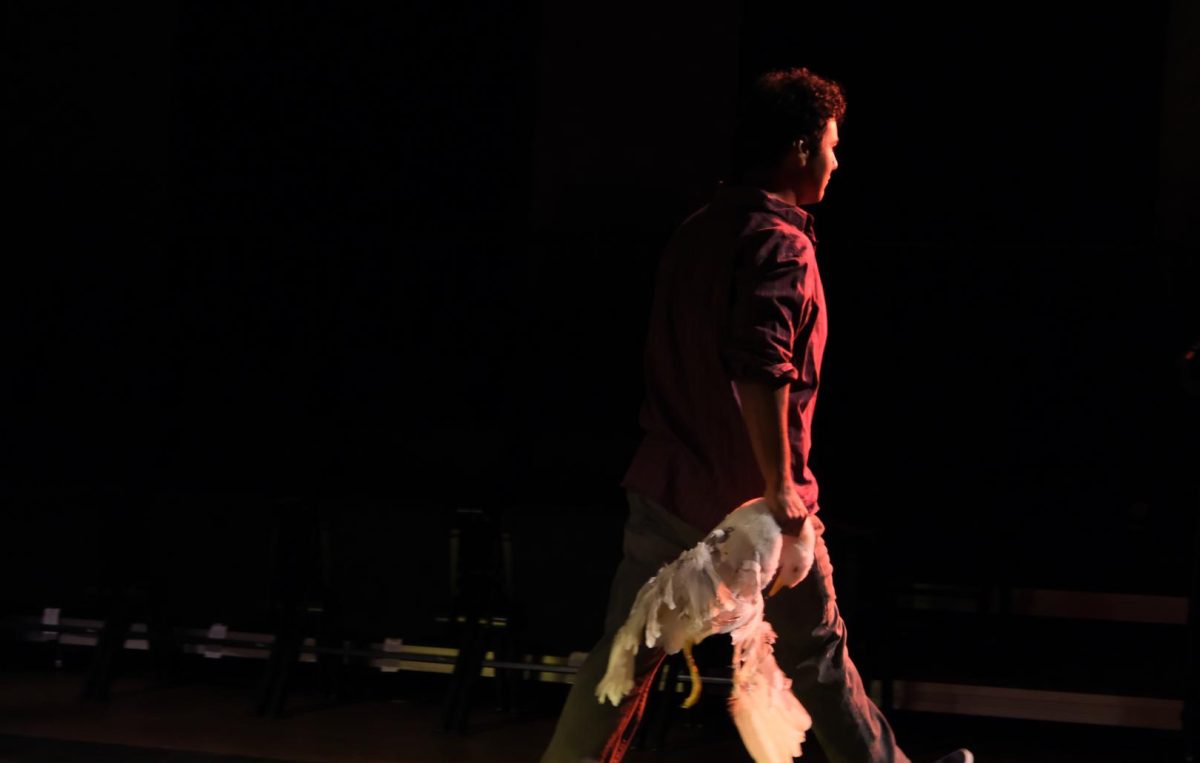Nearly one year removed from the Oct. 7 attack that sparked a wider conflict across the Middle East, Palestinian artist Bara’ah Oriqat was among a group of poets visiting San Diego City College.
Oriqat shared her poetry last, but made sure that it ended with significant impact.
“If I am right in this moment,” Oriqat recited, “if I am to produce work that is meant to be shared, it must always be in the service and liberation of my people and the care of my people.”
City College hosted Poetry for Palestine, an event to bring awareness to the ongoing tragedy occurring in the Middle East.
Organized by the World Cultures Program, the event brought in local poets to share original and borrowed poetry that celebrates Palestinian culture while acknowledging what experts are calling a genocide in the region.
One such poet at the event was Jason Magabo Perez, a professor of ethnic studies at Cal State San Marcos and current Poet Laureate of San Diego, who spoke to the impactful nature that poetry can deliver.
“I think that poetry and art … act as sort of invitations to open up the conversation,” Perez said. “Invitations to invite a reader or listener … maybe not to change their position but to listen.”
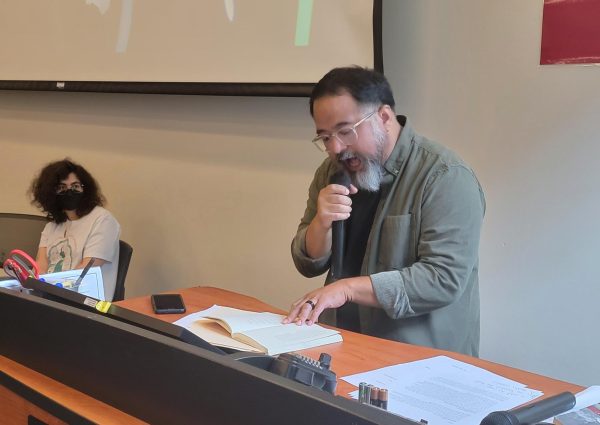
According to the United Nations, the death toll in Gaza has reached over 40,000 since last October, with some researchers believing the true number to be much higher.
The war in Gaza has become one of the central issues leading into the presidential elections, with many Americans fearing further escalation may lead to wider conflict across the Middle East.
Summer Farah, a Palestinian-American poet and author of “I could die today and live again,” said that she is unable to write about anything else.
“I feel like I must always go back to the genocide,” Farah said. “The past year has definitely changed how I approach my work.”
Attendance for the event far exceeded expectations, organizers said, as every available seat was taken in room MS-140. Attendees standing along the wall also found themselves stretching as far back as the door to the event.
Among those in attendance was Ashley McCollough, a City College student studying English and an avid reader.
When asked about her favorite speaker from the event, McCollough said she resonated greatly with Perez due to a shared perspective on the conflict.
“I’m not Palestinian, but I do resonate with their struggle,” McCollough said. “I think we Indian(s) have that kind of solidarity at that point. And so hearing his work really helped to kind of put what I feel into words.”
McCollough went on to say that the event inspired her to do even more to support Palestinians and amplify their voices.
This echoes the advice Oriqat gave attendees towards the end of the event when asked how others can be better allies to the people of Palestine.
“The first thing I’m going to say is educate yourself,” Oriqat said. “There is a whole lot of information out there, and it’s definitely at your fingertips.”
For those looking for recommended resources to support Palestine, Farah offered Decolonize Palestine as a useful source to gain insight into the conflict in the country.
“The power will come from the people rather than mainstream media,” Oriqat said.

